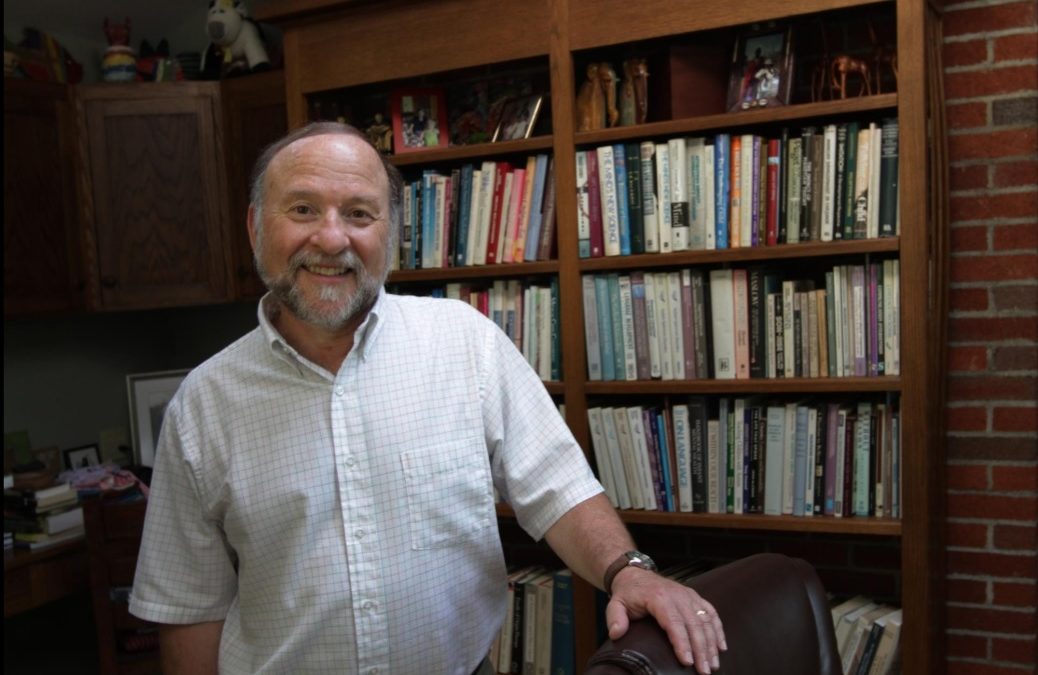Photo Copyright Providence Journal
Speech and language pathologist, Brown University faculty member, and Director of Childhood Communication Services (CCS), Dr. Barry Prizant joins us this week to discuss the Social Communication Emotional Regulation Transactional Support (SCERTS) model for developmental differences, including autism, and his new best-selling, award-winning book, Uniquely Human.
Dr. Prizant worked closely with Dr. Greenspan in the 1990’s and was on a parallel path in developing a relationship-based, developmental approach to developmental differences with a focus on school-based frameworks. He has published more than 120 articles and chapters on autism, childhood communication disorders and child development, has given more than 700 seminars and workshops in 49 states and 20 countries. Him and his colleagues developed the SCERTS evidence-based model for children at risk for communication disorders.
His latest book, Uniquely Human, is a best seller, is the Winner of the Dr. Temple Grandin award by the Autism Society of America for outstanding literary work in autism, and has been embraced by a wide-audience including self-advocates, parents and therapists of all disciplines. It is an easy read of stories from his 50-year career working with families, dispelling myths around autism and sharing insights into the world of autistic individuals.
Uniquely Human with Dr. Barry Prizant
The Social Communication Emotional Regulation Transactional Support (SCERTS) Model
The SCERTS model was developed by a team of professionals from a variety of disciplines and has a strong family-centered influence. It is a relationship-based, developmental model that was developed in school settings (an educational model) whereas the Developmental, Individual differences, Relationship-based (DIR) model was developed as a clinical model. However, it has far more similarities to DIR/Floortime than differences. There are three components of SCERTS that must be addressed in a comprehensive manner in any program are SC, ER, and TS.
Social Communication (SC) Research supports that social communication and progress is one of the best predictors of positive outcomes and of the development of trusting relationships. Emotional Regulation (ER) is supporting a person’s ability to be available for learning and engaging with others, which is affected by sensory challenges. Transactional Support (TS) has to do with all of the ways we support autistic individuals including on an interpersonal level, such as reading signals of anxiety and providing support. It also covers support for families and for professionals to support each other in order to be effective.
The SCERTS model is not exclusive from other strategies. They may use Floortime and aspects of other models such as using visual supports. It’s a framework that pulls together strategies from approaches that share similar values. And as an example, Pivotal response training (PRT) shares aspects of SCERTS such as following the child’s lead and using the child’s motivation to connect with the child, using reciprocity, etc. Dr. Prizant says that there is a move towards more developmental, relationship-based practices.
Dr. Prizant points out that the Autistic Self-Advocacy Network (ASAN) has endorsed both DIR and SCERTS as respectful models and for being informed by autistic people whereas even the most contemporary forms of Applied Behaviour Analysis (ABA) still have neurotypical people deciding how to practice without input from people on the spectrum.
Uniquely Human
This is Dr. Prizant’s 50th year in the autism field counting his experiences as a teenager working at camps, and most of what he learned actually came from autistic kids and their families, so in Uniquely Human he wrote stories about what he’s learned. It’s a mainstream book that is an easy read. It starts with the myths about autism as being a behaviour disorder.
Dr. Prizant brings up the point of how often practices within traditional ABA go against the intuitions of parents such as ‘reinforcing bad behaviour’ by ignoring it. Research tells us that it’s so important to be responsive and empathic to build a trusting relationship with the autistic person. There is a whole chapter on developing trust in his book.
What we label as autistic behaviour is no different than neurotypical behaviour when we are under stress. We have to remember that autistic individuals are so highly sensitive to stressors. Let’s not pathologize the behaviours of autistic people. Instead, let’s realize their reactions are human, Dr. Prizant says.
Dr. Prizant says that often even strengths have been pathologized whereas SCERTS refers to the Enthusiasms of autisic individuals. They are not obsessions, but enthusiasms. The book describes how to use these enthusiasms to form connections. It also drives Dr. Prizant crazy that this information has been around for decades yet is still not mainstream knowledge.
Dr. Prizant said that his book gives permission to parents to love and appreciate their children as they are as opposed to judging and trying to fix their child, which is so often the feeling we get from professionals providing therapy. There are parents that have thanked Dr. Prizant for validating what they have all along believed and did, even when professionals told them what they were doing was incorrect.
It’s antithetical to work on compliance as children then switch to self-determination in adolescence as many ABA programs do. It can result in people who can no longer tolerate any flexibility in their lives which is not what the longterm goals ever are. Developmental, relationship-based models aim to work on intrinsic motivation over external control.
Dr. Barry Prizant will present at the upcoming ICDL Conference
Dr. Barry Prizant gave the keynote presentation at the 23rd Annual International DIRFloortime Conference: Effectively Promoting Human Development with Compassion and Respect in San Francisco.
Thank you to Dr. Prizant for sharing his time to tell us about SCERTS and his latest book, Uniquely Human. If you appreciated this post, please consider sharing it on Facebook or Twitter. And if you have any related comments or questions, please feel free to post them in the Comments section below.
Until next time… here’s to affecting autism through playful interactions!



